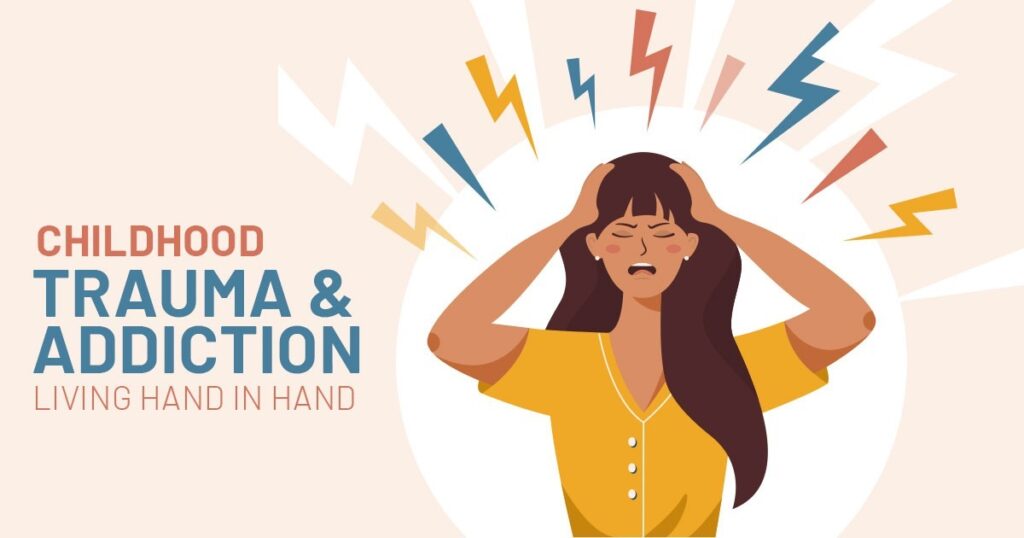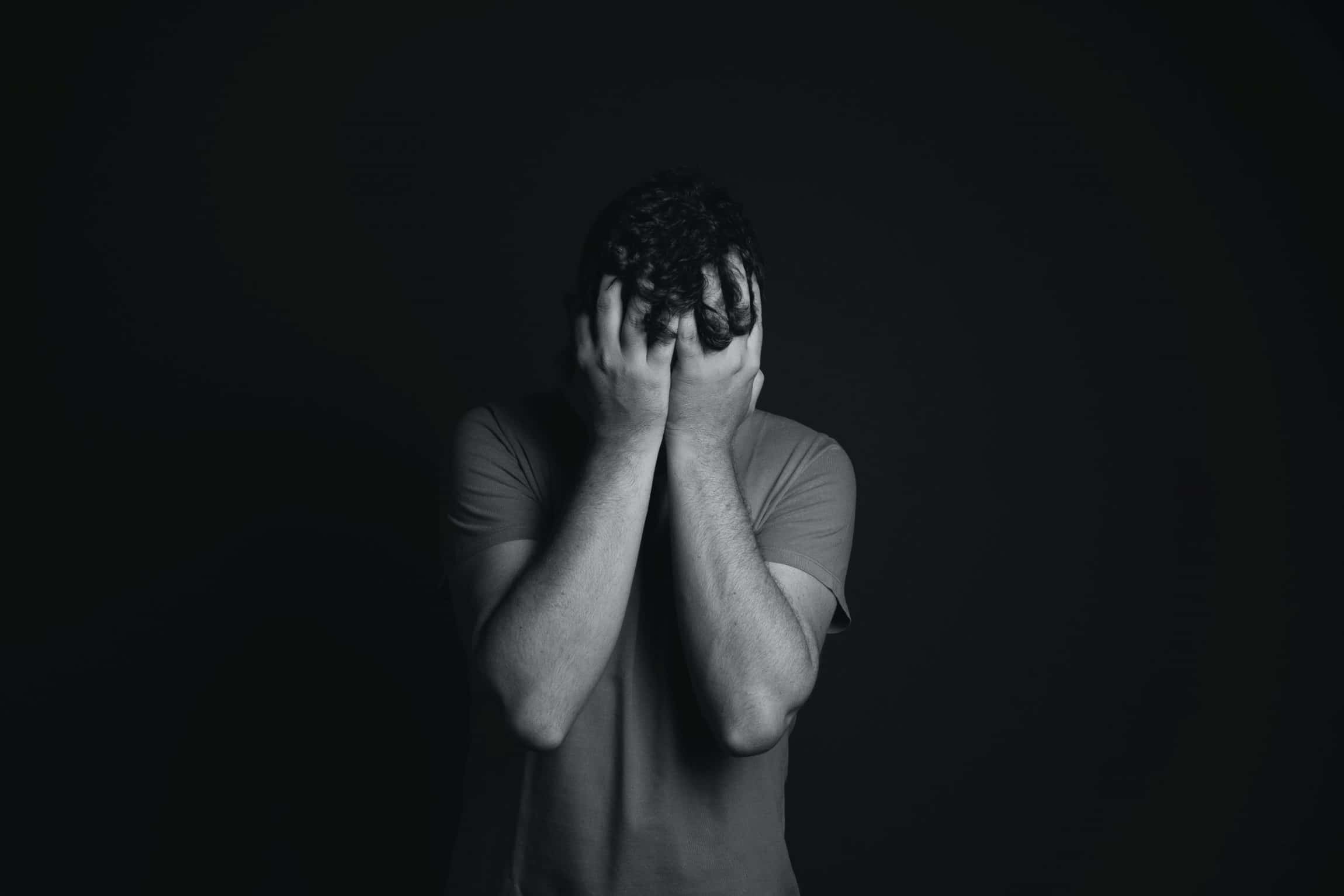Childhood Trauma and Addiction

Childhood experiences play a foundational role in shaping an individual’s emotional and psychological health. One of the most significant yet often overlooked influences is childhood trauma, which has been closely linked to adult addiction.
At Prayas Sewa Samiti, we’ve witnessed how early-life emotional wounds often manifest in the form of destructive behaviours and substance use later in life. Understanding the link between childhood trauma and addiction is essential in creating effective, compassionate treatment strategies.
How Childhood Trauma Affects Brain Development
Childhood trauma disrupts normal brain development. Constant exposure to stress during early years—whether from abuse, neglect, or witnessing violence—can alter brain regions responsible for impulse control, emotion regulation, and decision-making. These neurological changes often make individuals more vulnerable to addictive behaviours as a coping mechanism.
Emotional Coping and the Role of Substances
Unresolved trauma can lead to a lifetime of emotional pain, anxiety, depression, and even PTSD. Many individuals turn to alcohol, drugs, or behavioural addictions (like gambling or overeating) as a way to numb these emotional wounds. Childhood trauma often creates emotional triggers that push individuals toward substance use. This unhealthy coping strategy often spirals into full-blown addiction.
Recognising the Link: Common Signs
Identifying the connection between childhood trauma and addiction can be complex, but some red flags include:
-
Repeated patterns of substance abuse
-
Low self-esteem and trust issues
-
Difficulty forming or maintaining relationships
-
Chronic anxiety or depressive episodes
-
History of self-harm or suicidal thoughts
Acknowledging this connection is the first step toward recovery.
The Intergenerational Impact of Childhood Trauma
One of the most devastating aspects of childhood trauma and addiction is how the effects often pass from one generation to the next. Parents or caregivers who have experienced untreated trauma may unintentionally expose their children to similar adverse environments, creating a cycle of dysfunction, neglect, or abuse. Without timely intervention, this cycle continues, reinforcing emotional damage and increasing the risk of addiction in future generations.
Breaking this cycle requires more than detox or abstinence. It requires deep psychological healing, a change in family dynamics, and access to holistic, trauma-informed rehabilitation services—services offered with dedication at Prayasrehab, including Addiction Detoxification and Stages of Drug Rehabilitation

The Role of ACEs (Adverse Childhood Experiences)
The ACE (Adverse Childhood Experiences) study has shown a direct correlation between early trauma and later substance use. The more ACEs an individual has—such as parental separation, abuse, household substance abuse, or mental illness—the higher the likelihood of developing addiction and childhood trauma and other mental health issues as an adult.
High ACE scores often correlate with:
-
Early initiation of drug or alcohol use
-
Increased risk of chronic diseases
-
Higher likelihood of attempted suicide
-
Co-occurring disorders such as anxiety, depression, and PTSD
By identifying ACEs during the intake process, treatment centres like Prayasrehab can create personalised recovery plans that address each patient’s trauma history through Counselling in Addiction Recovery and Therapy for Addicts.
Addressing Shame and Guilt in Recovery
People dealing with both childhood trauma and addiction frequently carry a heavy burden of shame, guilt, and self-blame. These emotional weights can hinder their recovery process. Effective rehab doesn’t just target the addiction—it must also help individuals unpack and reframe these deep-seated emotions, as described in Dealing with Guilt and Shame in Addiction Recovery
Through therapies such as:
-
Dialectical Behaviour Therapy (DBT)
-
Trauma-focused CBT
-
Group therapy with trauma survivors
Clients gradually learn to replace shame with self-compassion and resilience. At Prayasrehab, clients are guided gently but firmly through this emotional work.
Building Healthy Coping Mechanisms
A vital part of trauma-informed addiction recovery is replacing harmful coping mechanisms—like drug or alcohol use—with healthy alternatives. Recovery plans at Prayasrehab often include:
-
Art and music therapy
-
Yoga and meditation
-
Exercise routines
-
Structured daily routines
-
Peer mentorship and support
These holistic practices not only aid in emotional healing but also help patients regain a sense of control and structure, which is often lost due to traumatic childhood experiences. Recovery also addresses challenges from Peer Pressure and Addiction
Support Systems: Family, Friends & Therapy
Recovering from childhood trauma and addiction is not a solitary journey. Family Support in Addiction and support group participation are essential components of the healing process. Rebuilding trust and communication within families allows individuals to reintegrate into society with a stable support network.
Programs at Prayasrehab actively involve loved ones, offering education about trauma and addiction, and teaching families how to provide ongoing support without enabling harmful behaviours.

Trauma-Informed Care in Addiction Treatment
Effective rehabilitation must include trauma-informed care. At Prayas Nasha Mukti Kendra, we emphasise addressing the root cause of addiction, not just the symptoms. Key aspects of trauma-informed treatment include:
-
Safe, non-judgmental environment
-
Cognitive Behavioural Therapy (CBT)
-
Eye Movement Desensitisation and Reprocessing (EMDR)
-
Family counselling and support
-
Mindfulness and stress-reduction techniques
By treating both the trauma and the addiction, patients experience deeper healing and longer-lasting recovery, often through Youth Rehabilitation Programs when trauma begins early in life.
Why Early Intervention Matters
Intervening early can prevent years of suffering. For children currently in high-risk environments, support systems like counselling, mentorship, and community programs are vital. For adults, revisiting and resolving past trauma can finally break the cycle of self-destruction and addiction.
Healing Is Possible
The journey from trauma to recovery isn’t linear, but it is possible—with the right support. Individuals need personalised care, professional guidance, and a safe space to confront childhood trauma and addiction and process painful memories. Peer support, therapy, and a consistent recovery plan are key elements in this healing journey.
Conclusion
The bond between childhood trauma and addiction cannot be ignored. At Prayasrehab, we approach every recovery plan with empathy, insight, and science-backed methods. If you or a loved one is struggling, know that healing is possible from childhood trauma and addiction with the right help. Choose Prayas Sewa Samiti, the best rehab centre in Dehradun, to begin your journey toward a trauma-free, addiction-free life.